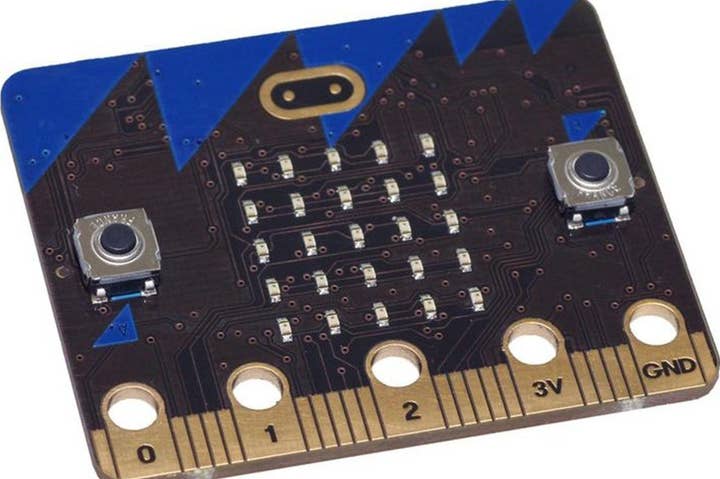BBC's free Micro-Bit computer gets final specs
Adds buttons and a motion sensor, will sell the hardware once 1 million unit giveaway is completed
The BBC has unveiled the final design of its Micro Bit computer, which it will distribute to every child in the first year of secondary education in the UK.
New additions to the prototype shown back in March are two buttons and a motion sensor, which opens up the hardware to a host of new potential applications. However, equally important is the removal of a slot for a watch battery, more or less killing the BBC's plan to make it a wearable device. Instead, the Micro Bit will require a peripheral power-pack for AA batteries, unless it is used in a network of other devices.
"The initial prototype utilised a smaller battery. However, in reviewing the design and examining the health and safety implications of using small batteries for a young audience, where siblings may be able to access the device, the partnership took the decision to re-engineer this element," a BBC spokesman said.
The BBC will operate a website to be used in conjunction with the Micro Bit, where its users can save and test any programmes they create. The most simple programmes will relate to the array of LEDs on the device itself, which can be made to light up in patterns. However, the Micro Bit's hardware has enough sensors and inputs to allow for some novel applications - a metal detector, for example, of a game controller.
The BBC has confirmed that, once the 1 million devices necessary to fulfill its initial objective has been produced, it plans to sell the Micro Bit in both the UK and abroad. It will also make the specifications open source.

